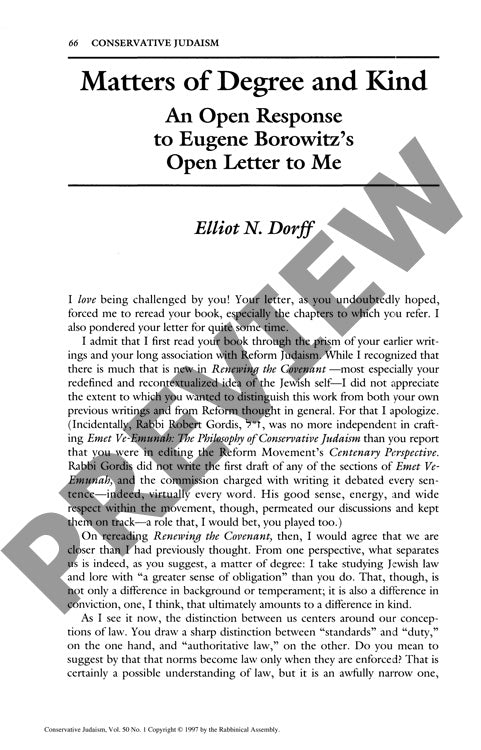Matters of Degree and Kind an Open Respo
Couldn't load pickup availability
The nature of Jewish legal authority remains a crucial point of contention between leading Jewish thinkers, as highlighted by Eugene Borowitz's critique of contemporary Jewish jurisprudence. In response, Dorff argues that their theological dispute transcends mere differences of degree in halakhic obligation, revealing instead fundamental disagreements about the essence of Jewish law and religious authority itself. Through close reading of rabbinic texts, historical analysis of Jewish legal development, and philosophical examination of law's relationship to morality and religious duty, Dorff demonstrates how Jewish law maintains its full authority even without enforcement mechanisms - similar to secular legal systems during Prohibition. The analysis reveals that while individual rabbis have historically shaped Jewish law through interpretation, the communal rabbinic process provides essential coherence, expertise, and historical continuity that pure individualism cannot maintain. Rather than advocating for individual decision-making, Dorff posits that the laity's legitimate halakhic power manifests through communal customs (minhagim), suggesting a balanced approach that preserves both tradition and contemporary relevance while sustaining institutional frameworks for Jewish legal development.

More Information
-
Physical Description
-
Publication Information
Published 1997
ISBN
-
Publication Credits
Elliot Dorff

